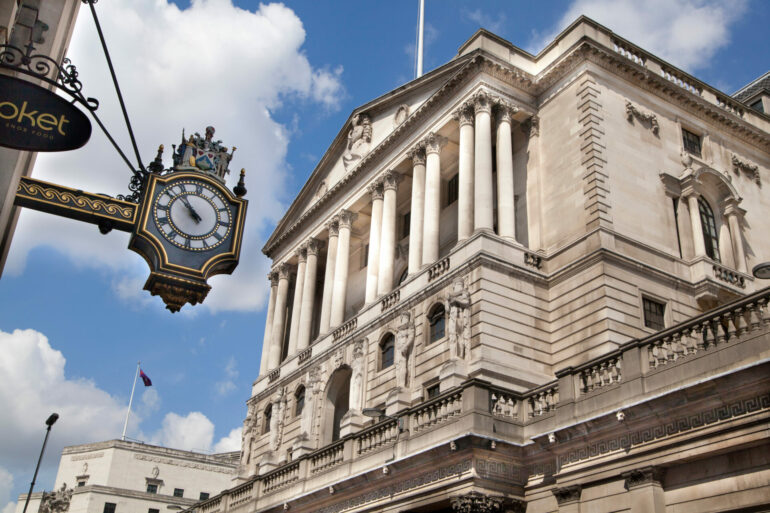As fixed rate deals expire and households come to renew, average mortgage payment costs will continue to increase according to the Bank of England.
The Financial Stability Report, published by the Financial Policy Committee, outlined an uncertain global economic outlook and heightening risk environment.
It found that for the typical mortgage rolling off a fixed-rate deal in H2 2023, monthly interest payments would increase by around £220 if the mortgage rate rose by the 325 basis points implied by current quoted rates.
However, the report said that while the proportion of income spent on mortgage costs would rise, it should remain below the peaks seen during the Global Financial Crisis and in the 1990s.
The Bank of England said that UK banks should be resilient enough, and have large enough capital buffers, to absorb losses and support households and businesses that are unable to make their payments.
The bank recently stress-tested the major UK banks using a scenario much more severe than the current economic outlook, including the unemployment rate increasing to 8.5%, inflation hitting 17%, and house prices falling by 31%.
It said the results showed that the banking system would continue to be resilient.
The report said: “Higher interest payments on loans mean some households and businesses may not be able to make their payments.
“This increases the risks that banks may face some losses.
“However, UK banks are resilient and they are strong enough to continue supporting households and businesses through a period of higher interest rates.
“In line with our rules, they have large capital buffers to absorb losses.
“And, so far, although some households and business have been under increased pressure, banks have not seen a big rise in borrowers being unable to make loan payments.
“Increases in interest rates feed through to the economy gradually, so the full impact is yet to be felt by households and businesses.”




